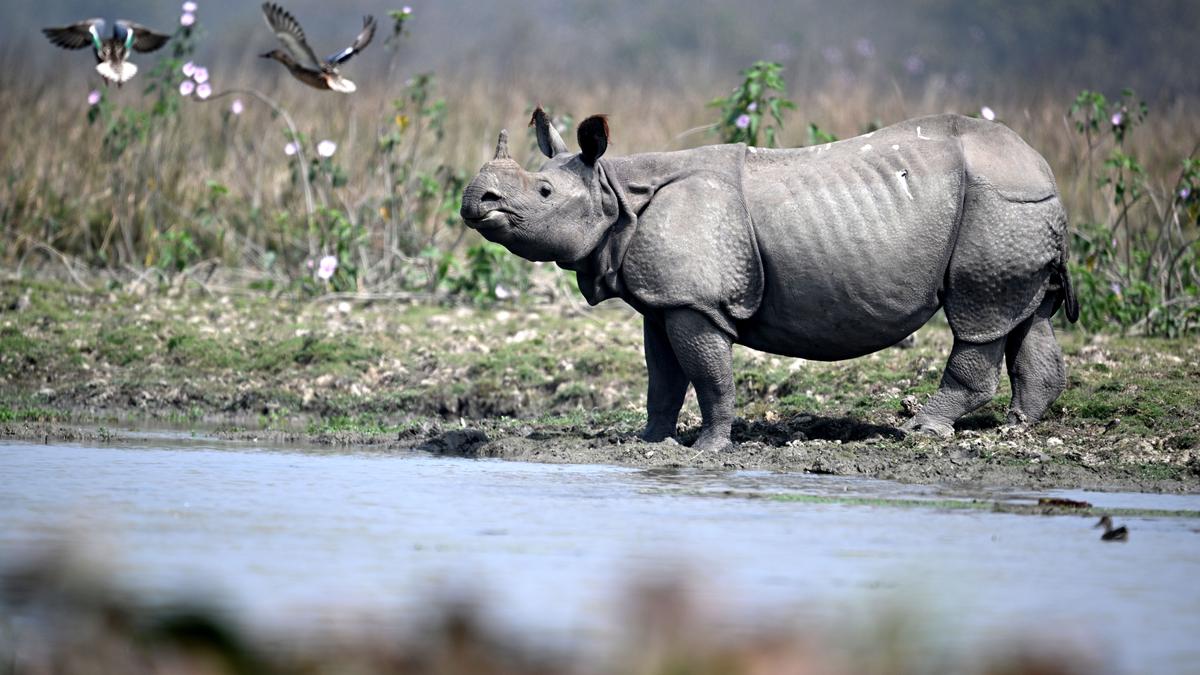RhoDIS India

- 16 Jul 2025
In News:
A specialised team has begun the genetic analysis of 2,573 rhino horn samples in India, with the goal of enhancing rhino conservation and curbing wildlife crimes. This is part of the RhoDIS India (Rhino DNA Index System) initiative.
About RhoDIS India Programme:
- Launched in 2016 by the Ministry of Environment, Forest and Climate Change (MoEFCC) in collaboration with:
- Wildlife Institute of India (WII), Dehradun
- State forest departments of Assam, West Bengal, and Uttar Pradesh
- WWF India
- Objective:
To create a DNA database of individual rhinos for:- Aiding wildlife crime investigations
- Supporting scientific management of the rhino population
- Implementation:
The genetic lab at WII Dehradun handles DNA profiling using a standardised protocol approved by the MoEFCC. It involves short tandem repeat (STR) allele analysis for generating unique genetic signatures for each rhino.
Recent Developments in Assam:
- In September 2021, the Assam Forest Department verified and destroyed 2,479 rhino horns stored in state treasuries, excluding horns under court cases or of special scientific interest.
- Prior to destruction, tiny samples from 2,573 horns were preserved for DNA and chemical analysis. These samples have now been repackaged and transported to WII for genetic sequencing.
- This analysis will help track temporal genetic changes and improve understanding of the rhino population’s genetic health across Assam.
- The entire repackaging process was recorded and monitored by independent experts to ensure transparency.
Significance of RhoDIS:
- Provides individual identification of rhinos from horn samples, helping track poaching incidents and illegal wildlife trade.
- Strengthens forensic evidence in courts related to wildlife crime.
- Assists in population management through genetic diversity assessments.
What is a Rhino Horn?
- Composed of keratin, the same protein found in human nails and horse hooves.
- Contains sulphur-rich amino acids like cysteine, and minerals such as calcium carbonate and phosphate.
- Greater one-horned rhinos (found in India) have a single horn, unlike African species with two.
